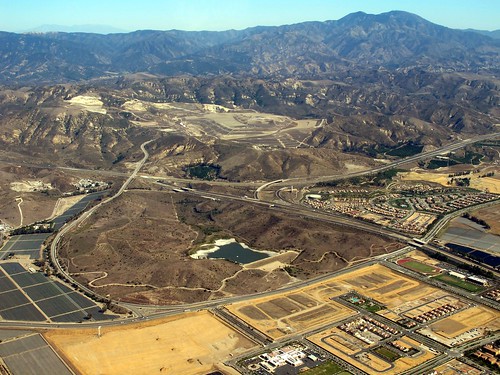an old article from BBC...
http://news.bbc.co.uk/2/hi/health/146634.stm
Babies are more likely to suffer from serious birth defects such as spina bifida and heart malformations if their mothers live close to toxic waste landfill dumps, scientists have discovered.
BBC environment correspondent, Robert Pigott, reports on the findings
A team of researchers from the London School of Hygiene and Tropical Medicine found women who live less than two miles from industrial landfill dumps are a third more likely to have children with serious birth defects.
They say the link makes it imperative that better monitoring of the health risks of landfill sites is introduced.
Scrutinised European sites
The BBC's Richard Hannaford on the risk of landfill sites
The scientists investigated the rates of birth defects around 21 industrial landfill sites in the UK, Belgium, France, Denmark and Italy.
They identified 1,089 cases of defects in live and still births and abortions where the mother had lived within 4.2 miles of landfills.
A further 2,366 children of women who lived within the same zone were identified who were born without malformations.
Analysis showed that children whose mothers lived within 1.8 miles of the dumps were 33% more likely to have birth defects than those whose mothers lived between 1.8 and 4.2 miles from the sites.
The risks fell the farther women lived from the landfill sites.
Account was taken of differences in mothers' ages and socio-economic status.
Both factors have been linked with the risk of birth defects.
Increased risks
[ image: Scientists looked at women living near industrial dumps]
Scientists looked at women living near industrial dumps
The researchers said in an article in the Lancet medical journal: "We have found increased risks of many types of congenital anomaly near the landfill sites, although not all of these findings were significant.
"There was a significantly overall increased risk of neural-tube defects, malformations of the cardiac septa (hole-in-the-heart), and malformations of the great arteries and veins in residents near the landfill sites in our study."
But it was not clear whether the increased risk of birth defects was caused by living near toxic waste or by some other factor, the researchers said.
They recommended environmental health monitoring for landfill sites and other pollution sources, which would include registers of birth defects and assessment of exposure to chemicals.
The team said: "Our results show the need for further investigation of the potential environmental and health risks of landfill sites and for a more systematic environmental health surveillance system in Europe."
'Don't be alarmed'
Lead researcher Dr Helen Dolk stressed that there was no firm evidence that landfill sites were causing the increase in birth defects, and that it was not known to what extend people were exposed to toxic chemicals.
She said: "If we had this kind of information and there was a correlation then it could get alarming, but we're not there yet. We need more studies.
"In general we should be carrying out more surveillance rather than leaving it almost to chance."
Dr Dolk said US studies indicated a link between landfill sites and birth defects, but never such a strong correlation.
She said it was possible that people could be exposed to toxic chemicals through gaseous emissions, dust particles, or through contamination of water supplies.
Difficult to interpret
Commenting on the study, Professor Goran Pershagen, of the Institute of Environmental Medicine, Stockholm, said it was difficult to interpret the results.
He stressed that no-one knew how much exposure, if any, the women had had to chemicals from the landfill sites.
He wrote: "Overall the evidence is very limited, and the results clearly point to the need for further study."
'Extremely worrying'
[ image: Health risks should be better monitored say researchers]
Health risks should be better monitored say researchers
The environmental group Friends of the Earth called for immediate action to assess the full extent of the landfill danger, and to reduce the amount of toxic waste the UK produces.
FoE said there were about 8,000 landfill sites in Britain, of which 2,000 were still having material dumped in them.
FoE senior waste campaigner Mike Childs said: "This research is extremely worrying. Friends of the Earth has warned for a number of years that landfill sites are toxic timebombs.
"There are thousands of landfill sites around the country, and no-one has a clue what toxic chemicals are dumped in many of them.
"The government must urgently conduct detailed health studies around rubbish dumps in the UK. Furthermore, we also need to tackle the source of the pollution. The government must act to reduce the amount of toxic waste produced by industry.

